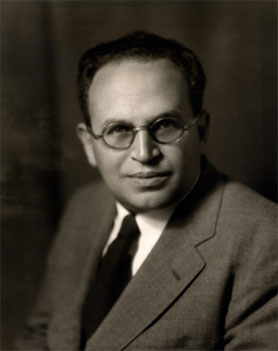
Paul Felix Lazarsfeld (13 February 1901 - 30 August 1976)
Born in Vienna where he also studied mathematics, physics and later psychology. In addition to his political activities in various socialist organisations, he soon turned his attention to the problem of acquiring and processing empirical sociological data, an area in which he performed ground-breaking work. Toward the end of the 1920s, with the help of the “Business Psychology Research Centre”, he launched the first institute for empirical social research in Vienna. This institute was the first to gain means of implementing academic projects by commercially oriented research. In 1932 he published the classic study on “The Unemployed of Marienthal” with Marie Jahoda and Hans Zeisel. After participating in a visiting research fellowship in the USA, sponsored by the Rockefeller Foundation, from 1933 to 1935, he decided to stay in the USA after the annexation of Austria in March 1938. After several way stations, he was made director of the “Office of Radio Research” at Princeton University in 1937. From 1939 this office operated under the name of “Bureau of Applied Social Research” at Columbia University in New York and was continued under his direction until 1949. From 1941 to 1971 he taught and directed at Columbia University, as well as teaching as a visiting professor at Sorbonne in Paris. After his retirement in 1971, he was conferred emeritus status and taught as a professor of sociology at the University of Pittsburgh, Pennsylvania until 1976. Lazarsfeld dealt with the general problems of applied social research, especially the effect of mass media and empirical psephology. Parts of his academic estate as well as parts of his correspondence are available in the Archive on microfilm. The originals are owned by Columbia University, New York. An index is available. The organization and indexing of the estate was made possible by the sponsorship of the Fritz-Thyssen-Foundation.
